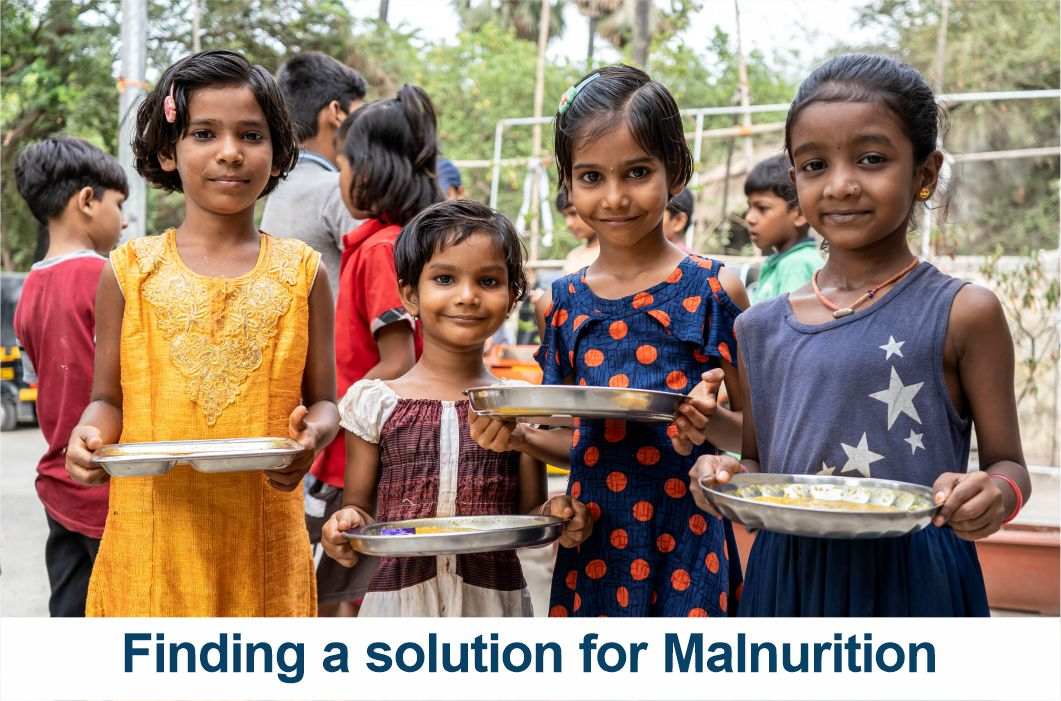India has never been the same since the pandemic; 2020 fundamentally altered the country's geopolitical environment, healthcare infrastructure, and even our individual choices in terms of how we live our everyday lives both inside and outside of the home. Covid-19 was the beginning of a chain of tragic incidents.
The country experienced a healthcare crisis unlike any other, yet the pandemic worsened problems that had previously affected the nation's populace.
Issues such as malnutrition. India's malnutrition and child mortality rates were among the most vulnerable conditions, with far-reaching implications. According to the 2021 Sustainable Report, India has dropped from 117 to 120 in the index of 193 nations. It is having difficulty achieving the goals of ending world hunger, promoting health and well-being, providing access to safe drinking water, and promoting gender equality, to name a few. The pandemic has further delayed the implementation of the SDGs. The data representation is frightening enough to necessitate an immediate response and proactive approaches to the problems we have been facing for too long.
The Bane of Malnutrition
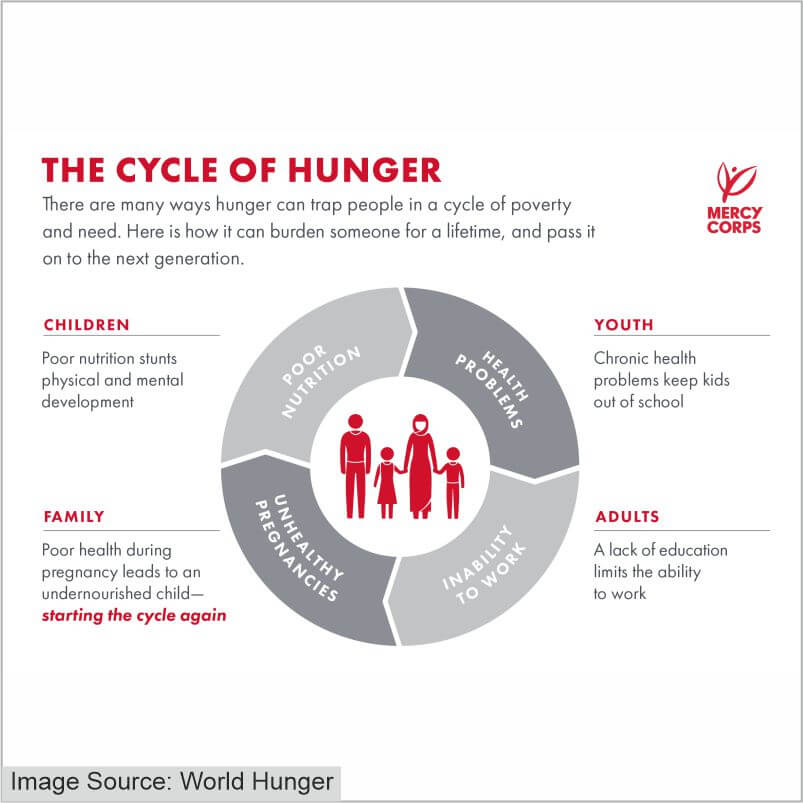
Food insecurity, shortage, malnutrition, and the food index are all relatively large phrases that capture the scary and frightening reality of a pervasive problem which still has no solution. Children should not have to go hungry, period. So why do developing countries, as well as the organisations in charge of them, fail to come up with adequate and workable methods to provide food, which is a basic need for any human?
Malnutrition's effects on human capital require prompt attention. India dropped from 117 to 120 in the ranking of 193 nations, according to the 2021 Sustainable Development Report, falling behind on issues like hunger eradication, health, happiness, and access to clean water, among other things.
The pandemic has caused a further delay in the Sustainable Development Goals implementation. According to the Sustainable Development Goals 2021 report, there has been a 7% increase in poverty, a rise in child malnutrition, a halt or reverse in health gains, and a decline in life expectancy.
India is falling short of three worldwide targets for stunting, wasting, anaemia, low birth weight, breastfeeding, and childhood obesity, according to the 2021 Global Nutrition Report. India's long history of malnutrition is the main contributor to poverty and other economic problems.
Challenges to the Zero Hunger Goal
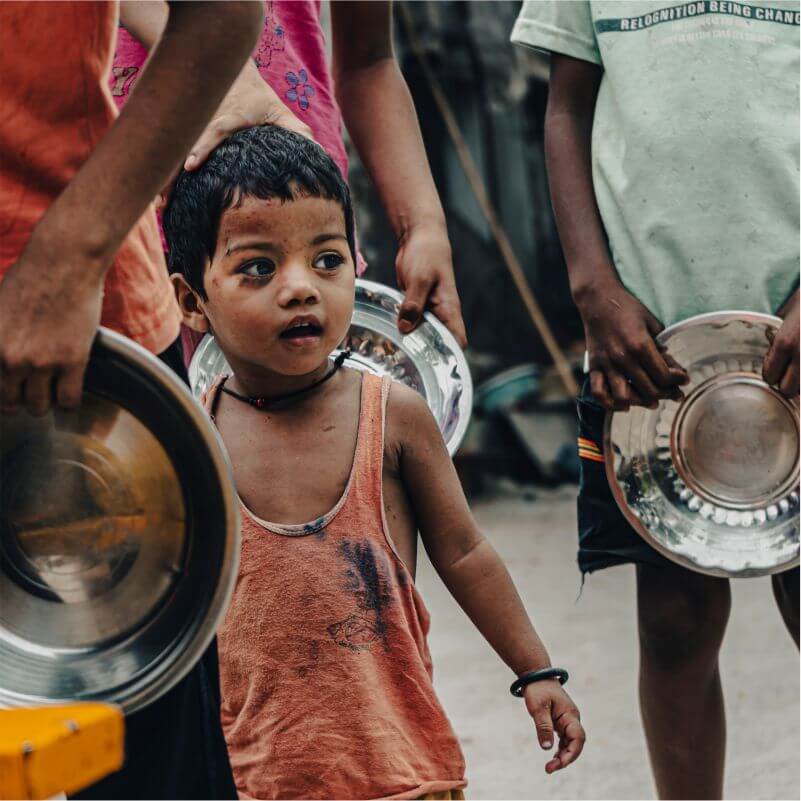
Food security is affected by various causes; the two largest ones are poverty and climate change. Changing temperatures, irregular rainfall, and an increase in the frequency of extreme events have a negative influence on agricultural activities worldwide and have made it more difficult to produce food. Furthermore, the switch from several to one cropping systems reduces the variety of agricultural goods. Similar to how shifting food preferences and a growing propensity for cash crops limit people's dietary intake, it can lead to malnutrition, undernutrition, and even shortages in some micronutrients.
Another rising problem that affects attempts to reduce hunger and malnutrition is the waste of food. This problem has been getting worse in recent years. According to the FAO, the global volume of food waste is predicted to be 1.6 billion tonnes of primary product equivalents. Therefore, putting an end to food waste is essential to reaching the goal of zero hunger by the year 2030.
Another rising problem that affects attempts to reduce hunger and malnutrition is the waste of food. This problem has been getting worse in recent years. According to the FAO, the global volume of food waste is predicted to be 1.6 billion tonnes of primary product equivalents. Therefore, putting an end to food waste is essential to reaching the goal of zero hunger by the year 2030.
With these facts and data, it may appear impossible to envision a world free of hunger by 2030. Yet, nations like China and Myanmar have significantly reduced undernutrition, giving hope to other countries and demonstrating that this is possible.
The Solutions - The 2030 Agenda
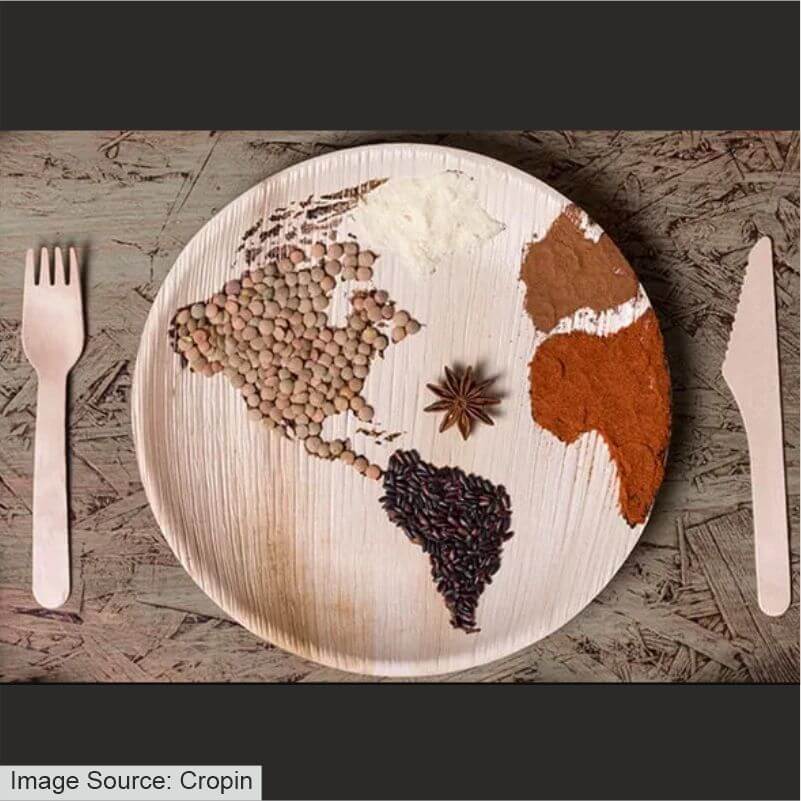
To reach the aim of eradicating hunger, it is crucial to consider the future of food production. Rural farmers can be taught about the food production cycle and market connections using new technologies and equipment like mobile phones. To ensure long-term food security, it is crucial to develop opportunities and careers for the younger generation to engage in and practise agriculture.
A set of fundamental principles based on the United Nations Charter and the 2030 Agenda for Sustainable Development serve as the foundation for the Zero Hunger Challenge.
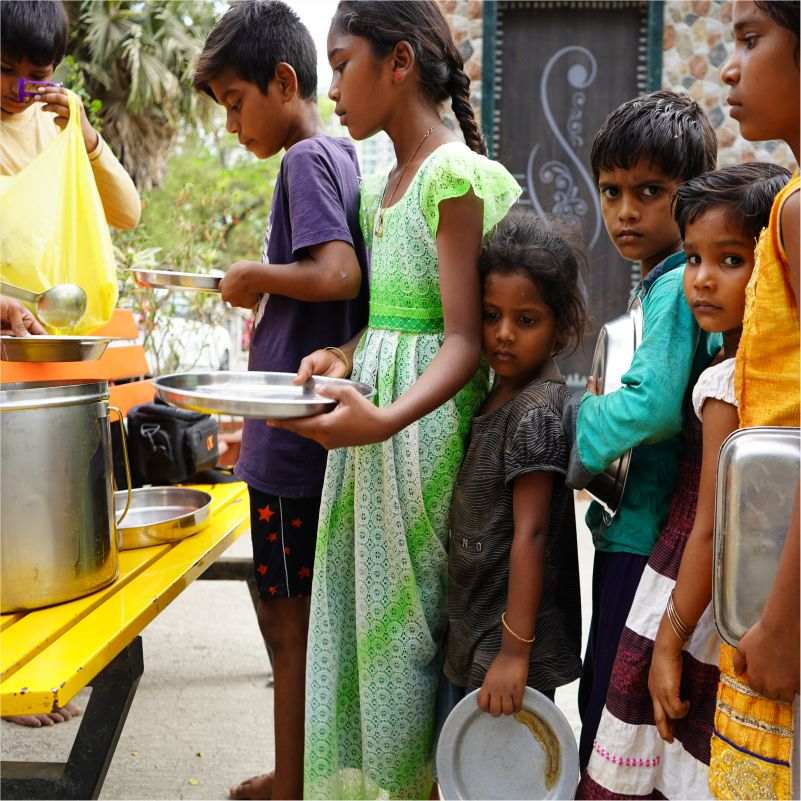
Five SDG components that, when combined, can end hunger, eradicate all kinds of malnutrition, and create inclusive and sustainable food systems that make up the Zero Hunger vision. A new narrative has emerged in part because of the Zero Hunger Challenge. It has sparked national-level action and helped keep sustainable agriculture and food security at the top of the global development priority list. It has inspired everyone to work together to put an end to hunger.
What is the Child Help Foundation doing to combat malnutrition?
These Global Goals are active and bring crucial conversations to the table. With the help of the Sustainable Development Goals, stronger initiatives can be built, and the serious problems plaguing the world may be brought to light.
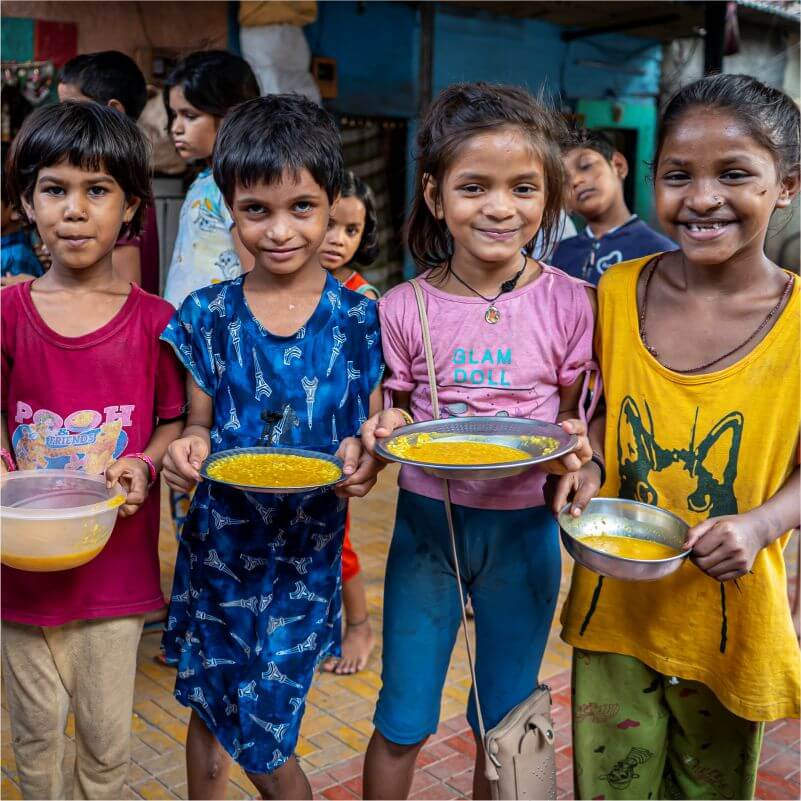
1800 children in India receive daily nutritional meals that are warm and freshly prepared, thanks to Child Help Foundation. So far, 13,44,457 individuals have benefited from the "Rotighar" project in collaboration with partner NGOs. The aim is to eliminate the difficulties and barriers that cause the kids to suffer. No child should sleep on an empty stomach; thus, Child Help Foundation and its partner NGOs deliver nutritious meals to children daily.
When the concept of Zero Hunger materialises, and we live in a world without hunger and food insecurity, it is tiny gestures like these that rocket activities. It will move us closer to the 2030 goal.
To help Child Help Foundation achieve the Zero Hunger mission, you can donate and bring smiles to thousands of children.
References:
